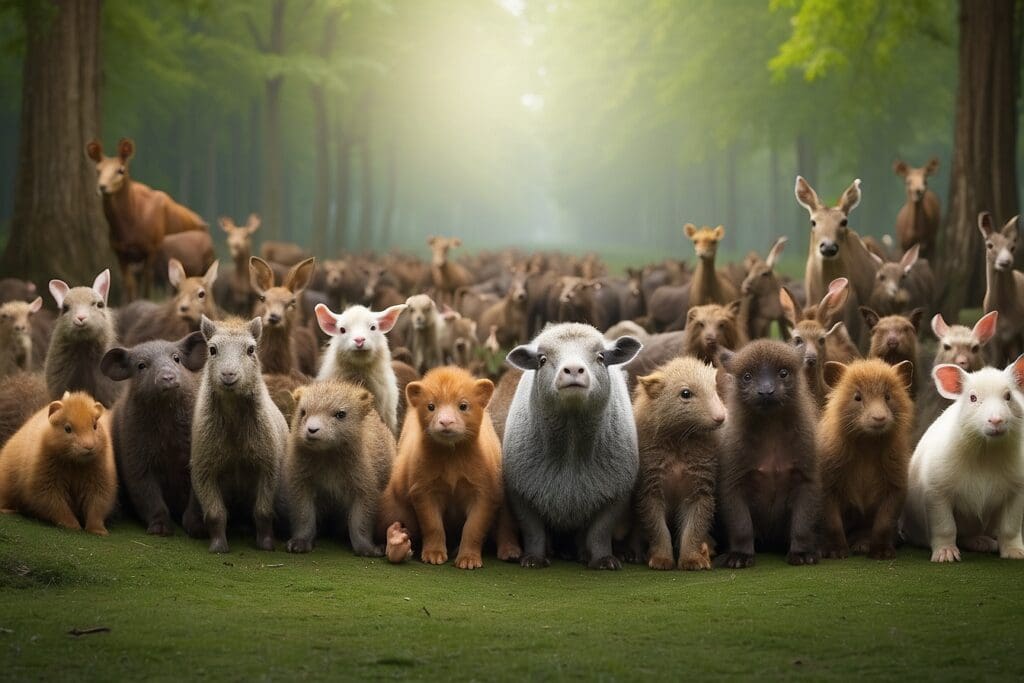This year voters were faced with a series of controversial issues on their November ballots. In particular, Californians were given the opportunity to vote on environmentally related issues explicitly and implicitly. One initiative that may have been an implicit vote for the environment was Proposition 2, also known as the Standards for Confining Farm Animals. Proposition 2 passed by 63% in California to prohibit the confinement of certain farm animals in a manner that does not allow them to turn around freely, lie down, stand up, or fully extend their limbs. The official summary of the initiative reads as follows1 :
• Requires that calves raised for veal, egg-laying hens and pregnant pigs be confined only in ways that allow these animals to lie down, stand up, fully extend their limbs and turn around freely.
• Exceptions made for transportation, rodeos, fairs, 4-H programs, lawful slaughter, research and veterinary purposes.
• Provides misdemeanor penalties, including a fine not to exceed $1,000 and/or imprisonment in jail for up to 180 days.
As this measure passed, it will be effective January 1, 2015.
The Arguments For and Against Prop 2:
• Yes on 2 supporters believe that this proposition will prevent animal cruelty, improve our overall health and food safety, promote and support family farms, and protect our air and water.
• No on 2 supporters believe that this proposition will increase the risk of bird flu and food borne illness like salmonella, increase grocery prices for California-grown eggs, put many California farms out of business, and harm the environment by contributing to global warming through increase food transportation.
Environmental Impact:

Californians decided to vote YES on 2. Along with the humane treatment of animals, this proposition will likely make a positive impact on our environment. Proposition 2 hopes to improve the environment, along with animal welfare, by2 :
• Protecting our air and water resources and safeguarding the environment. Factory farm waste is a major pollution issue. Each year in the US, confined farm animals produce almost 500 million tons of manure, which frequently pollutes the air and water, harming rural communities. Ending the most intensive confinement practices, as Prop 2 requires, means fewer animals per operation, and that means less waste.
• Improving conditions for farm animals and the people who live near them. The American Public Health Association has called for a moratorium on new factory farms because of well-documented human health risks. Factory farm waste is known to contaminate water supplies and harm air quality. Central Valley residents, for example, claim to be suffering devastating impacts to their health and quality of life due to toxic ammonia emissions from the Olivera Egg Ranch’s factory farm waste. Research by the University of Iowa found that children who attend schools in close proximity to factory farms have significantly higher rates of diagnosed asthma compared to other children. Much of the human and environmental harm caused by factory farms comes from the volume of waste that must be stored and disposed of when many animals are continuously confined indoors. Some factory farms produce as much waste as an entire city. Passing Prop 2 would reduce the amount of waste produced and the resulting harm to the environment and degraded quality of life for neighbors.
• Mitigating and reversing the effects of climate change. According to the United Nations, animal agriculture is responsible for more greenhouse gas emissions than all transportation combined. Every stage of meat, egg, and dairy production requires vast amounts of fossil fuel-based energy. Factory farm waste also emits greenhouse gases, contributing to climate change. The increased numbers of chickens raised for meat and egg production has been identified by the Environmental Protection Agency as one cause of recent rises in greenhouse gas emissions.
Backed by a variety of organizations and support, including the Humane Society of the United States, the United Farm Workers, the Sierra Club, and Clean Water Action, Proposition 2 has been a long awaited reform for many Californians. It may take many years to see the positive effects of Proposition 2, but for the over 20 million animals confined on California factory farms, it is a step in the right direction. Dating back to 2002, similar laws have been passed over the years in Arizona, Colorado, Florida and Oregon. Proposed legislation is also pending at the Federal level. In Europe, countries like Germany, Switzerland, Sweden, and Austria have already banned battery cages for egg-laying hens while the entire European Union is phasing out battery cages by 2012. The economic effects of such laws still remain unclear, but for animals, human health, and the environment, this is a much-needed change in agriculture.
For more information on the YES on 2 campaign in California, check out: http://www.yesonprop2.com/.





